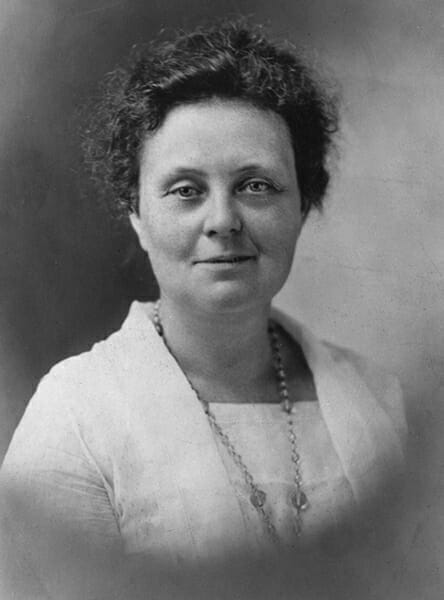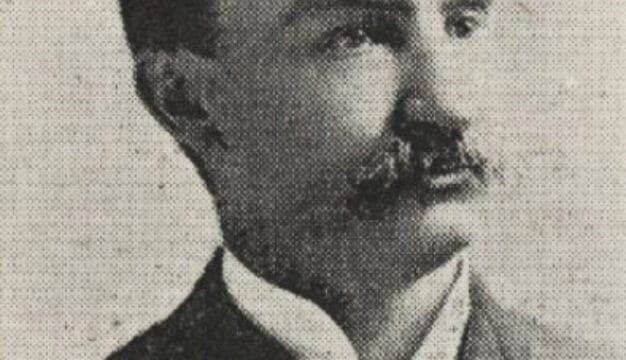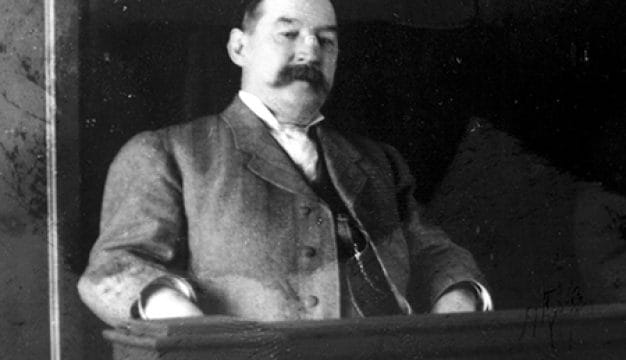Maud McKnight Lindsay
Maud Lindsay (1874-1941), daughter of the only foreign-born governor of the state of Alabama and a childhood friend of Helen Keller, established Alabama’s first free kindergarten in East Florence in what was then a cotton-mill district. In addition to teaching there for 42 years, she wrote numerous children’s books, poems, and a play.
 Maud McKnight Lindsay
Maud McKnight Lindsay was born in Tuscumbia on May 13, 1874, to Sarah Miller Winston Lindsay and Robert Burns Lindsay. She was one of nine children, only four of whom survived into adulthood. Her father had emigrated from Scotland at the age of 20 and served as professor of languages at Willingham College in North Carolina before becoming Alabama’s governor in 1870. Although she had no formal higher education, Lindsay became interested in teaching kindergarten. After working as a music teacher in a private kindergarten in Tuscumbia, Lindsay opened her free kindergarten in 1898. The school, now known as the Maud Lindsay Free Kindergarten, is still in operation.
Maud McKnight Lindsay
Maud McKnight Lindsay was born in Tuscumbia on May 13, 1874, to Sarah Miller Winston Lindsay and Robert Burns Lindsay. She was one of nine children, only four of whom survived into adulthood. Her father had emigrated from Scotland at the age of 20 and served as professor of languages at Willingham College in North Carolina before becoming Alabama’s governor in 1870. Although she had no formal higher education, Lindsay became interested in teaching kindergarten. After working as a music teacher in a private kindergarten in Tuscumbia, Lindsay opened her free kindergarten in 1898. The school, now known as the Maud Lindsay Free Kindergarten, is still in operation.
As part of her mission to teach, Lindsay wrote and published numerous children’s books. Her first book, Mother Stories (1900), prefaced each story with a “motto” for the mother that was intended to teach lessons about life. Among her best known works were her Selected Poems (1900), More Mother Stories (1905), A Story Garden for Little Children (1913), and two book-length tales, Little Missy (1922) and Silverfoot (1924). Most of Lindsay’s works reflected her own childhood experiences in Alabama. In A Story Garden for Little Children, for example, she describes familiar southern customs: “Saucer Pie” describes the practice of baking a child’s pie in her own small saucer, and “Thimble Biscuit” relates the custom of giving children the remnants of biscuit dough so that they might cut out their own tiny biscuits using their grandmother’s thimble.
In all of Lindsay’s work, the underlying message is that life is full of richness and possibility no matter what the circumstances. She devoted her entire life to her teaching and writing, never marrying. She died in her sleep on May 30, 1941, and was buried in the Winston family cemetery in Tuscumbia. Lindsay was inducted into the Alabama Women’s Hall of Fame in 1996.
Additional Resources
Butler, Mary S. “Maud McKnight Lindsay.” Alabama HistoricalQuarterly 3 (Summer 1941): 178-188.



